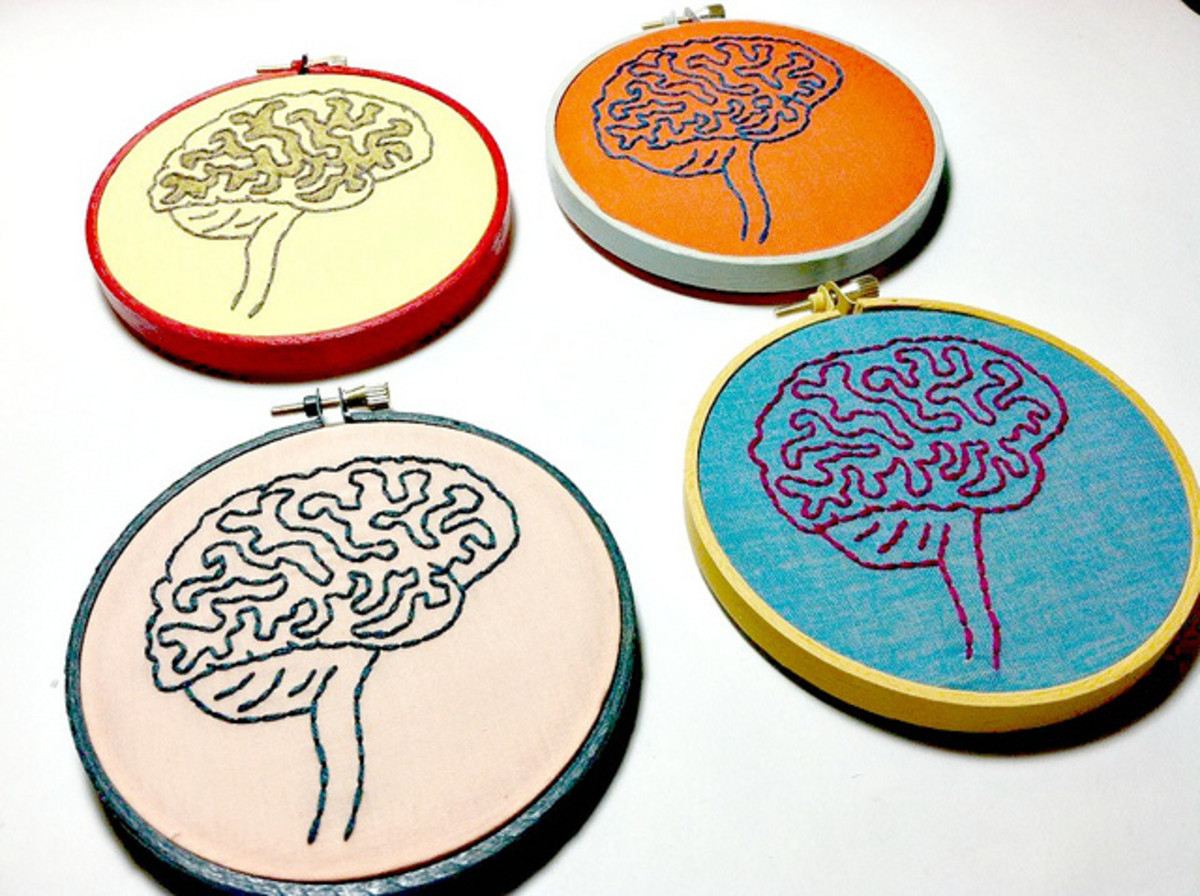The Myers-Briggs Type Indicator test represent a Moderate BS To Intellectuals.

It's a college paper we all wrote one ..here's mine
The Myers-Briggs Type Indicator is a personality test designed to identify some aspect of psychological differences. According to the typological theories of Carl Gustav Jung, the founder of Analytical Psychology, there are four main functions of consciousness which he described as two perceiving functions and two judging functions. However, the two persons who began the development of the indicator types were Katharine Cook Briggs and her daughter Isabel Briggs. It was developed to help the women who were entering the industrial workforce during World War Two find comfort, by identifying what sort of jobs would be most appropriate for them.
The Myers- Briggs Type Indicator is composed of sixteen types, and each type has its own characteristic. Some types have up to three similarities but nonetheless can be distinguish because of one single difference. For example lets take a look at these types,' INTJ, INTP, ENTP and ENTJ. It is obvious that INTJ is different from ENTP, but how certain are these tests to show an ENTP being different from an ENTJ on the basis of judging vs. perceiving.
It seems that the chances of these two types being misinterpreted are highly possible.
To see the possibilities of that effect, we must look at the choices that are available when an individual takes the test. It is by questioning the attributes which produces ones personality types that we can choose to give merit to the test if merit is deserving.
However, by observing these questions format, I came to the conclusion that the personality test neglected those other conditions that contribute to a person perception & judgment. As we acquire new information on an object, our perception of the object changes and subsequently changes how we judge the object. Since our judgments tend to depend on our ability to think and feel, we prefer to look for detail and facts. Sometime what one perceive for being a fact, may not necessarily be fact. In this case the person's judgment is offset by his or her perception.
Assume that a murder has been committed a glove has been found next to the victim. Upon investigation, authorities gathered evidence that led them to investigate person X. Further investigation revealed that blood stain was found at the house of person X. DNA evidence proved that the blood stain found on the glove matches the blood stain found at the house of person X. Evidence also proved that on the day of the killing person X was seen around the victim's house. Therefore, authorities have enough evidence to assume that person X could have committed the murder. Person X is then arrested and he has been placed in jail awaiting trial.
However, let us now assume that person X had a crazy cousin who committed this murder without his consent. Let us say authorities found no evidence that point to the cousin, then person X may very well stay in prison. What if the cousin felt guilty and admitted that he committed the murder during the delivery of the trial by explaining in detail how he did it. Then, could the authorities judgment may have been offset by they perception because the information they depended on was misinterpreted?
What this example meant to explain is that perception derives from information gathered. Since our judgments are base on information, our judgment tends to depend on our perceptions to interpret the information. Therefore, for Katharine Cook Briggs and her daughter Isabel Briggs to differentiate two personality types on the basis of one difference is subject to question. I predict the miscalculation of these two types could have been a matter of choice variability that was available while taking the test.
Looking at Jung Typology Test, I noticed that there are about 72 questions; each one can be answered by indicating yes or no. However, when I looked at how the questions are formed, I discovered that they vary too much. For example, question number one states: You are almost never late for your appointments? I presume since we all have been late once or twice in our lives, this question pertains to some groups of individuals who are sometime late. Therefore, we can say that some personality types falls under this question category. If we accept that, we're admitting that these test assumed that no one has a unique personality. Each and every one of us belongs to a particular group. I surely don't agree with this ideology.
I believe that every individual is unique for the simple fact that we do not under go the same identical experiences in our life. Our experiences represent the information that is stored in our minds. What determines how our judgments are affected by these experiences, depends on how our minds interpret these information. And since judgment is part of the attributes used to characterize our personality types, these tests need to be reexamined. They do not take into consideration all the other aspect that contributes to a person's personality type.
Furthermore, I looked at another question that states: It's difficult to get you excited? I can't think of anyone who would not answer yes to this question. It is almost as if the question is catering to one's ego, which man do you know wants to be known as a one minute guy. I also look at the other site to see if I could find a test where the questions were more to the point, instead I came across this site similar minds.com which grade their answers in a form of the most possible outcome.
These series of questions come with five choices that ranges from very inaccurate through very accurate. What I am implying here, is that these test vary too much and it is because of their variability that a person's personality type can result in choices like ENTP and ENTJ where the difference among the two are determine by which test one took.
However, apart from some people what I do not agree on, is how The Myers- Briggs analogy described some terms that are used to identify individual's personality. As an example, intuition is described as "those who tend to trust information that is more abstract or theoretical, that can be associated with other information. They may be more interested in future possibilities. They tend to trust those flashes of insight that seem to bubble up from the unconscious mind. The meaning is in how the data relates to the pattern or theory." I agree with this definition to a certain degree.
However, intuition cannot be described for being theoretical. A theory can be proven through a scientific acceptable explanation, but intuition cannot. Intuition is what most of us refer to as instinct because it is motivated by our subconscious minds. Intuition is base on unknown laws, laws that are not yet understood by the human minds. Intuition is dealt by the sense of feeling, which is the six sense. Which means that it cannot be smell, touch, hear, taste or sighted.
I perceive intuition as an energy form which can be translated as a person's spirit. Therefore, when one die, the spirit leave the body but it does not leave the planet. However, that concept is up for debate since no one has return from the dead.
Nonetheless, I accepted it as truth because it is what my intuition tells me. I cannot explain it, I can only feel it. I should also point out that they are many things on this planet that humans have not been able to explain logically. Someone communicating with the dead through spiritual manifestation is one example.
Perhaps, there are some types of higher level thinking that humans have not yet tap into. Maybe we should take a different approach on how we look at things. For example your eye does not tell you the truth about this paper being on the table. Your eye is the tunnel which helps you understand the truth about the paper being on the table. To know the truth you must understand that the table is composed of the smallest invisible particle of matter when bounded together create a density that can hold the paper. ( please excuse my matrix ) We take it for granted because we're brought up with the understanding that wood is solid, although we don't know why but we know it can hold paper.
The truth has always relied on prior knowledge, maybe it is that prior knowledge about intuition that is missing which prevents us from understanding it.
Although intuition may be abstract, it does not mean it hold no significance to us. If intuition (Spirit) does not exist than we can say that humans are born without a purpose in life. If we accept the idea that humans are born with a purpose in life, than they must be some imaginary force dedicated to record every step of that purpose. And that imaginary force is what I described as the spiritual force.
On the other hand, if we are born without a purpose than all we are is flesh and blood. If that is the case, we may as well drug ourselves to death, enjoy life to the full potential because there are absolutely nothing to look forward to. OK, Maybe I over exaggerate there a little but life to some people would not have been the same had they believe that they is no spirit. Intuition (Spirit) is an energy force but it exists in the air.
The closest argument which I have for trying to explain intuition logically, is that it relates closely to the law of thermodynamics. Which states, "Energy can neither be created nor destroyed. It can only be transfer from one form to the next." Likewise, Intuition is an energy which exists in the air, it can neither be created nor destroyed, it can only be transfer but it does not take a different form.
It does not matter how I try to explain it, and I would never get it right. It is not explainable, it's a feeling, you either experienced it or don't. However though, it has been proven that some people depended on it so much that they have develop a way of life which is govern by their intuition. Meaning, without saying a word to you, they can sense your presence and know right away if you are up to something that threaten their existence.
According to Myers-Briggs Type Indicator Test, I am an ENTP type and my colleague Kevin is an ESFP type. After I finished taking the test, I decided to look up the definition on my type which led to this: "The ENTP has been described variously as the innovator, the lawyer, the inventor, and the visionary. They also fall into the general categories of thinkers, rationales, and engineers." It's kind of impolite to deny a complement, especially when you are being put on a pedestal.
The above characteristics are part of someones traits that identified with what one intends to exhibit, but they do not give a detail approach to personality type. I don't believe that my personality pertains to any significant personality types. I believe what effects my personality is my environment, information, ethics, values and beliefs. I can be described for being humble, persuasive, reliable, strong minded and definitely not a follower. If a test was effective enough to extract the information that was necessary to identify one's personality types, the above mentioned are the attributes that test would extract from my personality.
What I have realized about the terminologies that are used to identify some personality types is that they are too vague. It is as if the terminology is programmed to allow some types of behavior to fit other personality type. To prove my point, I decided that I would look for other personality types to see if a match exists. This is what I found, "ENFPs are able to anticipate the needs of others. They bring zest, joy, liveliness, and fun to all aspects of their lives. They tend to idealize people, and can be disappointed when reality fails to fulfill their expectations." Again this is putting the personality type on a pedestal.
As for being disappointed because some aspects of one's needs are not met, have nothing to do with personality types. Everyone is subject to disappointment especially if a person gives for the benefit of a bigger return. The disappointment is effective because of the expectation one place on each other not because of one's personality type, you dig. If you dug it than link this hub to dig.com.
However, I realized if I was going to continue with this, I might as well look to see what the test says about my colleague Kevin. "ESFPs make decisions by using their own personal standards. They use their feeling judgment internally to make decisions by identifying and empathizing with others. They are good at interpersonal interactions and often play the role of a peacemaker. ESFPs are likely to be generous, optimistic, and persuasive. Warm, sympathetic, and tactful." As you can see, these results are very much similar, it's just a different approach of flattering, this is why the test is not reliable, it's a complete bull...it to our intellect.
As a matter of fact the reliability of the test has been interpreted by some for being low. Studies have proved, test takers who retake the test often end up being assigned a different personality type whether or not they took the same test. It is the same as saying Prof. Dickon, you're a good man, a visionary man, a family man, a man of good ethics, a fair man - hey by the way can I borrow $500.00? I promise I'll give it back to you in two weeks with interest. What this example is meant to show is that one cannot expect to flatter another for the benefit of expecting them to agree with their proposition.
Well, Prof. You asked me what I thought about this test as a team building tool, I think by now you already know the answer. The validity of the MBIT is not base on any facts, it has been argued that this test reflects a lack of critical scrutiny. Although neither Katharine Cook Briggs nor Isabel Briggs Myers had any scientific qualifications in the field of psychometric testing, I'm not judging them base on their qualification. I couldn't care less about they qualifications. However, what I 'm judging them on are they inabilities to show evidence of logic, facts and consistency in their hypothesis of Myers-Briggs Type Indicator. Like I said before, this test is an insult to our intelligence, it represent a Moderate Bull...it To Intellectuals.
BIBLIOGRAPHY
Long G. Thomas. "Myers-Briggs Type Indicator." [Wikipedia the free encyclopedia] Available http://en.wikipedia.org/wiki/Myers-Briggs_Type_Indicator#Criticism, Oct 1992.
Jung. "HUMANMETRICS." [Jung Typology Test] Available. http://www.humanmetrics.com/cgi-win/JTypes2.asp, Sept 1998.
Jung. "Personality Test" [similaminds] Available
http://similarminds.com/cgi-bin/newmb.pl. Not Available.





